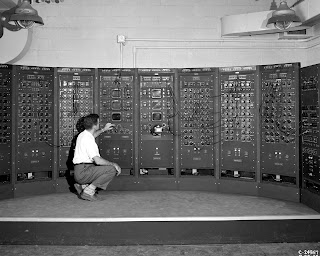Powermat – How Does the Powermat Wireless Charger Work?
 PowerMat is an exciting new wireless charging technology. It was first demonstrated in 2008 and early 2009 and is now available to buy for the home and office.
PowerMat is an exciting new wireless charging technology. It was first demonstrated in 2008 and early 2009 and is now available to buy for the home and office.
So what is PowerMat? It is a small device that uses wireless charging to charge your most important gadgets like cellphones (including the iPhone and Blackberry), video games (including the Nintendo DS), and iPod without you having to connect them to a charger or plug them into the wall. The PowerMat itself is, of course, plugged into the wall and connected to mains electricity by a wire, but from then on everything is wireless. You drop your device onto the PowerMat and it gets charged wirelessly, without you having to do anything.
So how does PowerMat wireless charging work?
The technology behind PowerMat is known as ‘electromagnetic induction’ (or just ‘magnetic induction’). Michael Faraday is generally credited with the discovery of the induction phenomenon in 1831 though others were working in the same field at the time.
This electromagnetic induction is officially defined as “the production of voltage across a conductor situated in a changing magnetic field or a conductor moving through a stationary magnetic field” but that does not mean very much to most people. A better way to put it is that it is a means to transfer electrical power using a shared magnetic field.
Consider this arrangement:
1. Put electrical power into a coil of wire
2. This will produce a magnetic field around the coil that affects any metal within the field (as demonstrated by Faraday)
3. Change the field quickly over time and an electric current will be generated in the metal
So what is happening when a PowerMat is charging is that it is generating rapidly changing magnetic fields above the mat; these are converted by receivers on any devices on the mat into electrical power, and so these devices get charged. The magnetic fields and electrical currents are, of course, very small and so they can work on handheld gadgets without being a health risk to humans.
The same technology is used in a huge number of other devices and systems including generators, motors, transformers, some cookers, induction welding, and so on. Perhaps to most people the best known example is in rechargeable electric toothbrushes, where they are familiar with dropping a toothbrush into a ‘dock’ daily to keep it charged. However they may be unaware that similar systems are also operating in electric guitar pickups, video tape players, and computer graphics tablets.
PowerMat is currently the best known example of a wireless charger but this technology is developing rapidly and soon we will see it in many other applications and products. The PowerMat company itself is planning to extend the technology and feature it in kitchen counters, walls, and other surfaces around the home. One day this technology may be used everywhere and be invisible, it will be so commonplace. Finally we will be freed of the endless tangle of chargers and wires around the home.





